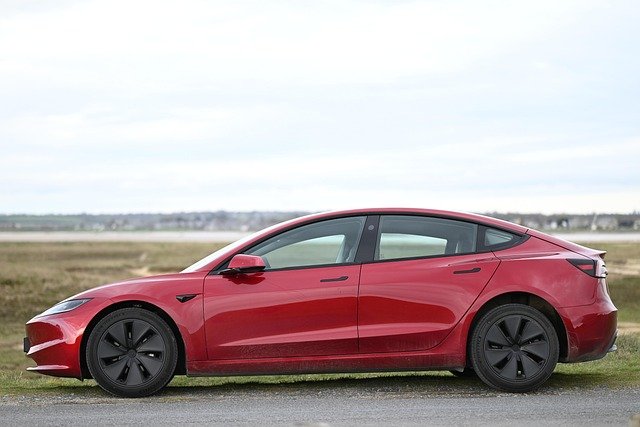Understanding Car Leasing Options in the UK
Car leasing has become an increasingly popular alternative to traditional vehicle ownership across the United Kingdom. This flexible arrangement allows drivers to enjoy a new vehicle without the commitment of purchasing, often with lower monthly payments and minimal upfront costs. Whether you're considering a compact city car or a spacious family SUV, leasing offers various options tailored to different needs and budgets.

Car leasing provides UK drivers with a practical way to access newer vehicles while avoiding the depreciation costs associated with ownership. The concept involves paying for the use of a vehicle over a fixed period, typically between two to four years, after which you return the car to the leasing company. This arrangement has gained considerable traction among both private individuals and businesses seeking cost-effective motoring solutions.
What Makes Long Term Car Rental Different from Traditional Leasing
Long term car rental operates similarly to leasing but often provides greater flexibility in contract terms. While standard leasing agreements typically run for two to four years, long term rental can range from one month to several years. This option suits individuals who need a vehicle for extended periods but prefer not to commit to lengthy contracts. Long term rental agreements usually include maintenance packages, road tax, and breakdown cover, simplifying the overall motoring experience. The main distinction lies in the contract structure, with rental agreements offering easier exit strategies and more adaptable mileage allowances compared to traditional lease contracts.
Exploring SUV Leasing in the United Kingdom
SUV leasing has experienced remarkable growth as families and professionals seek vehicles offering space, versatility, and elevated driving positions. The UK market features an extensive range of SUVs available for lease, from compact crossovers to full-size luxury models. Popular choices include the Nissan Qashqai, Volkswagen Tiguan, and Range Rover Evoque, each catering to different requirements and price points. SUV leasing typically involves higher monthly payments compared to smaller vehicles due to increased value and running costs. However, the benefits of enhanced practicality, safety features, and modern technology often justify the additional expense. Many leasing companies offer competitive rates on SUVs, particularly when manufacturers provide promotional support or excess stock needs clearing.
How Car Deals with No Deposit Work
Car deals with no deposit have emerged as an attractive option for drivers who prefer not to make substantial upfront payments. Traditional leasing arrangements often require an initial payment equivalent to three, six, or nine months of rental fees. No deposit deals eliminate this requirement, spreading the total cost across the contract term through slightly higher monthly payments. This approach improves accessibility for those managing cash flow or preferring to preserve savings for other purposes. While monthly costs increase marginally, the absence of a large initial outlay makes leasing more attainable. These arrangements work particularly well when combined with manufacturer incentives or dealer promotions, potentially offsetting the higher monthly structure.
Understanding Leasing Costs and Payment Structures
Leasing costs vary considerably based on vehicle type, contract length, annual mileage, and initial payment amounts. Understanding these factors helps in making informed decisions when comparing offers from different providers.
| Vehicle Type | Provider Example | Monthly Cost Estimation |
|---|---|---|
| Small Hatchback | Nationwide Vehicle Contracts | £150 - £250 |
| Family Sedan | Leasing.com | £200 - £350 |
| Compact SUV | Octopus Electric Vehicles | £250 - £400 |
| Premium SUV | Select Car Leasing | £400 - £700 |
| Electric Vehicle | Synergy Vehicle Contracts | £300 - £500 |
Prices, rates, or cost estimates mentioned in this article are based on the latest available information but may change over time. Independent research is advised before making financial decisions.
These estimates reflect typical market conditions for contracts spanning three years with annual mileage limits of 10,000 miles and an initial payment equivalent to three months of rental fees. Adjusting any of these variables affects the monthly cost. Longer contracts and lower mileage allowances generally reduce monthly payments, while premium vehicles and higher mileage limits increase them.
Key Considerations Before Committing to a Lease
Several important factors warrant careful consideration before entering a leasing agreement. Annual mileage limits significantly impact contract costs, with excess mileage charges typically ranging from 5 to 20 pence per mile. Accurately estimating your driving needs prevents unexpected costs at contract end. Vehicle condition also matters, as lease agreements stipulate acceptable wear and tear standards. Damage beyond normal use incurs additional charges upon return. Contract length affects both monthly payments and overall flexibility, with longer terms offering lower monthly costs but reduced adaptability to changing circumstances. Insurance requirements for leased vehicles often necessitate comprehensive coverage, potentially increasing overall motoring expenses. Understanding these elements ensures realistic expectations and helps avoid unwelcome surprises.
Comparing Leasing with Other Vehicle Acquisition Methods
Leasing presents distinct advantages and disadvantages compared to purchasing or using short term rental services. Ownership through purchase provides long term value and freedom from mileage restrictions but requires substantial capital and exposes owners to depreciation. Leasing offers lower monthly costs and access to newer vehicles with warranty coverage, though you never own the asset. Short term rental suits temporary needs but becomes prohibitively expensive over extended periods. Personal contract purchase agreements combine elements of leasing and ownership, offering the option to buy the vehicle at contract end. Each method serves different financial situations and preferences, making it essential to assess your specific circumstances, driving habits, and long term plans before deciding.
Car leasing continues evolving as manufacturers introduce new models and leasing companies develop innovative products. The rise of electric vehicles has particularly influenced the market, with attractive leasing rates helping offset higher purchase prices and addressing concerns about battery longevity. As the automotive landscape transforms, leasing remains a flexible, accessible way for UK drivers to enjoy modern, efficient vehicles without the commitments and costs of ownership.




